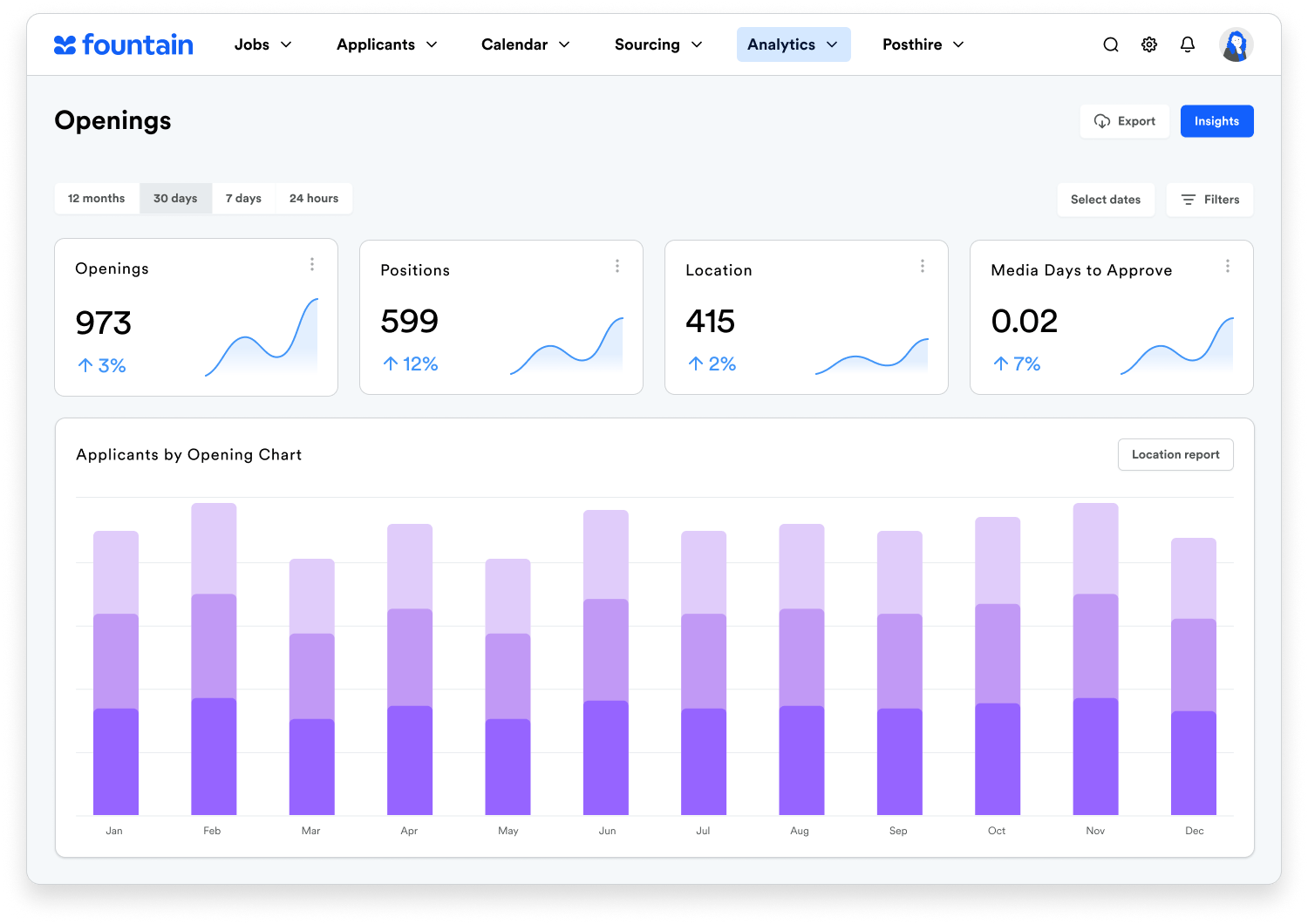If you are currently sourcing and hiring workers, it is highly likely that you will recruit millennials at some point. This is because millennials now have the highest percentage of workers in the U.S. labor force. This generation includes people born between the years of 1981 and 1996. Millennials are known for having different priorities, work patterns, and hopes for their careers. Misunderstanding these differences has led to a bad reputation when it comes to managing millennials in the workplace.
To get the best out of your millennial employees, your business will need to make certain changes. One of the biggest adjustments businesses should make when managing millennials in the workplace is in relation to their management style.

Here are ten tips for managing millennials in the workplace.
1. Managing millennials means not making it about the money
The millennial workforce has different priorities than the generations before them. Work-life balance has overtaken cash as the main motivating factor. Around half of the U.S. workforce in 2016 said they would rather have a lower status, lower paying job than have a high paying job with less flexibility. According to the U.S. Bureau of Labor Statistics, the millennial workforce spends less money every year than the generations before or after them.
Previous generations have normally defined success by the amount of money earned and someone’s position within a company. These definitions of success do not necessarily apply to the millennial workforce. Instead, success is defined by the ability to live a fulfilling life, while having a full-time career. This is why one of the best tips for managing millennials is to think of incentives or packages that provide additional perks outside of money.
This does not mean that the millennial workforce are not willing to work as hard, or put in the necessary hours. A study by the employment and recruiting agency, Randstad found that 45% of millennials feel that they should be reachable for their employers during off-hours, even when on vacation.
This willingness to be available for work at a moment’s notice is a new trait that may not have been present in past generations. Millennials want flexibility, this means if you’re managing millennials in the workplace, then you should create opportunities for them to enjoy life while still meeting the requirements of a full-time job.
One of the best tips for managing millennials, means creating a good work-life balance for your millennial employees, and this will put you ahead of your competitors. This is because only 53% of working people in the U.S. feel that their employer really values a work-life balance. When sourcing candidates, emphasizing flexible working practices will make your company more attractive when interviewing millennials.

2. Embrace diversity when managing millennials in the workplace
The Pew Research Center has found that there is more ethnic and racial diversity amongst the millennial generation than any other adult generation. Additionally, the U.S. Bureau of Labor Statistics predicts that ethnic diversity in the labor force will increase. Millennials prioritize inclusion and take into consideration a company’s diversity practices when seeking employment.
Gender equality also needs to be a priority when working with and managing millennials. A Pew Research Centre Study revealed that most people of this generation believe that more changes need to be made in the workplace to create equal opportunities.
Diversity and equality should be priorities if you are working with or managing millennials. They want to work for a company that they believe in and feel proud to represent.
3. Offer work from home opportunities when managing millennials
With advances in technology, work from home opportunities are becoming more frequent. The U.S. Bureau of Labor Statistics found that, in 2017, 20% of wage and salary workers were working from home. Access to the internet makes it possible for many jobs to be done remotely without affecting the quality of the work. Being a technologically savvy generation, the majority of millennials (75%) want to be able to work remotely. To some companies, this is why millennials are hard to manage. However, to be competitive in this age, you’ll need to adapt and offer more workpalce flexibility to attract the millennial generation.
The millennial workforce is also known for being driven by positive results. Rather than focusing on “the way things used to be,” millennials are more focused on the end goal. This is one of the keys for how to deal with millennials in the workforce.Since they may not mind having to answer emails at odd hours or make quick edits to a project on the spot, you’ll need to change your processes to be more accessible at all hours.
If your business is not equipped to offer full-time work from home positions, consider trying occasional work from home days or work from home projects.

4. Redefine job duties when managing millennials
The millennial workforce has gained a reputation for “job hopping” and adopting the Amazon Prime approach to finding work. Typically, previous generations were loyal to one job or one company. Millennials may stay in a job for only a year or two before moving on, and this is why millennials are hard to manage. A survey by Deloitte found that 43% of the millennial workforce expects to leave their job within two years and only 28% could see themselves staying for more than five years.
The millennial workforce is goal-oriented and will look for opportunities that better fit the vision they have for their career, even if it means switching employers every few years. One of the top tips for managing millennials and to reduce turnover amongst your millennial staff is to help them find new opportunities within your company. Communicate with them about their goals and provide new responsibilities for career development.
This retention strategy will benefit your business and your employees. You will save time and money that would be spent on recruiting and training new hires. Your employees will feel validated as they are given new responsibilities and will also feel invested in your business.
5. Keep it ethical to keep millennials engaged and happy at work
More than ever, the behavior of businesses and corporations are under a microscope. Information travels faster than ever because of online publications and social media. If a business is associated with a scandal, the world can know about it in minutes. As a result, the majority of the millennial workforce thinks businesses behave in unethical ways.
This distrust negatively affects the loyalty that the millennial workforce has towards their employer. This generation prioritizes ethical treatment of employees and customers, and is essential if you want to continue managing millennials. If they do not feel that their workplace share these values, it is likely that they will leave to find an employer that better fits their needs.

6. Make a social impact to manage millennials and keep them engaged
This topic is similar to promoting ethical business dealings. Millennials want to feel like they are making a difference in the world. They want to use their skills and knowledge to make a social impact.
A popular solution is to offer your employees “volunteer days.” These days work similarly to paid time off or vacation days. Offer your employees one or two paid days every quarter for volunteering in the community. Encourage them to wear clothes that will tell people that they are volunteering on behalf of your business. This will build your brand image and reputation in your community, while making your employees feel that they are making a difference.
Another option is to match employee donations to a charity. You can keep this manageable by choosing one charity that your business will support. Employees can make cash donations, or donations can be taken automatically from their paychecks. As a sign of goodwill, your business should match all or a percentage of your employees’ donations.
Implementing these strategies could encourage millennial employees to stay on longer because they will be proud to be employed by your business.
7.Tips for managing millennials means increasing flexibility
The millennial workforce wants a flexible workplace much more than previous generations. Where older generations valued rules like dress codes or structured hours, millennials thrive by focusing on results and meeting goals.
The millennial workforce may be drawn to on-demand and independent contract work where they can control their hours and not be concerned about things, like dress codes, strict hours or commutes. According to a 2017 survey by Intuit, 30-40% of the U.S. workforce is made up of contingent workers.
With all of these options, it is not surprising that the some millennials weigh up the benefits of becoming independent contractors vs. employees. However, millennials are not the only generation who choose this flexibility. According to The U.S. Bureau of Labor Statistics, older workers nearing retirement, dual-income households and single-parent households are also looking for positions with more flexibility.

8. Avoid stereotypes when managing millennials in the workplace
Most millennials have received a bad reputation, and have been labeled as hard to manage. News stories portray the millennial workforce as lazy or non-committal, but these stereotypes may not be accurate. The management company, Qualtrics, conducted research into the origins of these assumptions. The research found that 82% of millennials place a very high value on their careers, which is a higher number than previous generations. This research also found that the millennial workforce has different priorities in relation to choosing their employer. They are focused on finding the best fit for them before they make a long-term commitment.
Managing millennials means you also have to be aware of their ambitions to progress into managerial positions more than the proceeding Generation X. The U.S. Bureau of Labor Statistics found that 70% of men and 61% of women in the millennial workforce are interested in working their way up, which is a 12% increase for men and a 20% increase for women. It may take a millennial longer to find the right company to settle down in. However, once they find the right fit, they will want to commit to the job. This is evident as, 67% of the millennial workforce say they prioritize loyalty to a good company.
Millennial stereotypes may make good headlines, but they may not always reflect the truth. Millennials have a strong desire to work hard for companies that they believe are worth the effort.
9. Embrace the millennials’ technical abilities
The internet was invented in 1983 and popularized in 1990. That makes the millennial workforce the first to grow up with computers and the internet. Concepts, like social media, web searches, smartphones or emails are part of everyday life for millennials. Where previous generations may struggle and become frustrated by the amount of technological changes in the workplace, millennials can thrive in this environment.
Millennials may be more willing to learn about new technologies and also be able to catch on to new processes faster, because they are used to interacting with technology. Using them as one of the key power users in evangelizing new technology is an excellent way to deal with millennials in the workplace. This can help them feel ownership over a specific project, and more engaged at work.
Businesses who take advantage of technology in every process from hiring to training may be prioritized by millennials. The hiring phase is the first time a millennial will engage with your business as a potential employee. Therefore, you need to ensure you make a good impression from the beginning.
Do you want to know how to use technology to benefit your hiring process? Click here to find out How to Embrace Technology in Hiring.

10. Build personal relationships when managing millennials in the workplace
When working with millennials, it is important to build lasting professional relationships. Millennials are more likely to be loyal to an employer that they honestly believe cares about their success.
The millennial workforce places a high value on regular feedback. Take time to communicate with your employees to discuss their progress and what needs to be done to improve. This feedback will encourage an open and honest relationship between you and your employees that will make them feel appreciated. It could also persuade employees to come to you with new ideas and suggestions to improve processes.
The millennial workforce is changing the way we think about careers and jobs. Due to the fact millennials make up the majority of employees in the U.S., it is impossible to ignore their needs in the workforce.
Working with millennials may seem challenging at first, because their priorities are very different from past generations. It can be tempting to get frustrated at what first appears to be a lazy or needy attitude. Unfortunately, you may experience a high turnover rate as millennials move on to find the position that is right for them. However, you can reduce the chances of this happening by taking into account the tips above to ensure that your business is responsive to the needs of millennials.
Communication is key when dealing with millennials in the workforce. You also need to provide them with the right technology to do their jobs.
If you use a technology and automated approach to hiring, it is likely that millennials will form the right impression of your company.
Impress millennials (and other candidates) by using Fountain as your hiring platform. Fountain provides a mobile-first experience to streamline the hiring process.
Your hiring managers will also be impressed when using Fountain features, like Boost which takes the hassle out of posting to and monitoring different job boards. Fountain also integrates with other platforms, like background screening companies to provide a complete hiring management experience.
Book a free, personalized demo today to find out how Fountain can help you to impress and help motivate the right candidates to work with your business.

